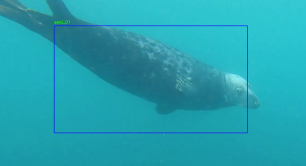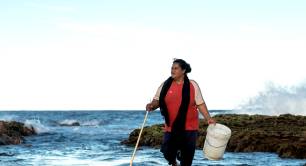The Editor’s Post: Finding hope in music and open-source mapping

What's your favourite song about a department store? This week’s view from the Pioneers Post newsroom.
I’m sure everyone has their own favourite a capella folk song about the founding of a department store, but for me the best is The Hartlepool Pedlar, by the Young’uns, which tells the story of how Jewish immigrant Michael Marks settled in England and co-founded Marks and Spencer.
The song is from the ‘Strangers’ album, which celebrates battles for social justice, grassroots progressive movements and solidarity across social and cultural boundaries. It's an album I often reach for if I’m in need of hope or inspiration.
I found myself recommending ‘Strangers’ to my colleagues this week. It wasn’t that inspiration was in short supply, but that one track references the Ebro river, near where editor Julie Pybus lives in Catalonia.
Sources of hope, however, was the topic of a conversation I had with reporter Laura Joffre while I was working on the latest Impact World This Week, our regular round-up of key impact-focused news for our readers. I included a story about a UN Global Compact Network UK report that benchmarked the performance of UK businesses against the SDGs.
To make progress against the SDGs, the report said, “policymakers must provide coherent, long-term frameworks – including mandatory human rights and environmental due diligence”.
At the same time, Laura was writing about the EU Legal Affairs Committee’s move to weaken its corporate sustainability reporting laws. The story developed this week when the EU Parliament voted against the committee’s proposal, prompting a standing ovation from far-right MEPs, who saw it as a further step towards ridding the EU of sustainability regulations altogether.
Clearly the MEPs hadn’t read the UN Global Compact Network UK report.
So while politics seems to get increasingly bleak, we have to look elsewhere for sources of hope and solutions to the ecological and social crises we face. This week's ray of sunshine can be found in the latest feature in our Earth Fixers series (produced in partnership with Hogan Lovells), in which I profile Humanitarian OpenStreetMap Team (HOT), a nonprofit equipping communities across the world with the tools and skills they need to better prepare for, and respond to, climate-related disasters.
Founded in 2010 as a voluntary organisation, HOT has evolved its model so that it is now focused on enabling communities to continue projects without HOT’s involvement and potentially make a living from their new skills.
Rebecca Firth, HOT’s executive director, is acutely aware of power dynamics, and how they can hinder the delivery of truly transformative impact. Firth described how in its role as a grant giver, and with its focus on supporting the establishment of sustainable social enterprises, HOT has worked to get comfortable with truly ceding control of projects and resources to the communities it collaborates with.
She said: “If you want to see where the power is in the system, the only thing you have to do is follow the money. I could say I'm going to empower someone, but if I don't make that real by giving resources they can actually be in charge of, in my view it is very cursory.”
The scope and scale of impact HOT is making across the world, from mangrove restoration in Indonesia to mapping emergency infrastructure in St Kitts and Nevis, is testament to the success of its collaborative, community-focused approach.
In a few weeks, politicians, business leaders and civil society will descend on Belém, Brazil, for COP30. As at every conference concerning solutions to the climate crisis, there will be a lot of kind words about the importance of empowering Indigenous and community groups to find solutions.
Will, like HOT, the decision-makers at COP truly put this rhetoric into action? We can only hope.
This week's top stories
Mapping a fairer future: The open-source movement that's mobilising for climate resilience
Homes for Good builds on Scotland success with London launch of social enterprise lettings agency
Frank Aswani, CEO of AVPA: ‘Africa is the perfect sandbox for us to really get innovative’
Image: Humanitarian OpenStreetMap Team participatory mapping in Tanzania (credit: Chris Morgan, Flickr)
| Ready to invest in independent, solutions-based journalism?
Our paying members get unrestricted access to all our content, while helping to sustain our journalism. Plus, we’re an independently owned social enterprise, so joining our mission means you’re investing in the social economy. |





